Dr Max Lane, pictured here with Faiza Mardzoeki, talks about his project to establish a community and activist library for the student city of Yogyakarta in Indonesia. Video: Café Pacific
By David Robie in Yogyakarta
A vision for a progressive activists, writers and researchers retreat in the lush outskirts of Indonesia’s most cultural city, Yogyakarta, is close to becoming reality.
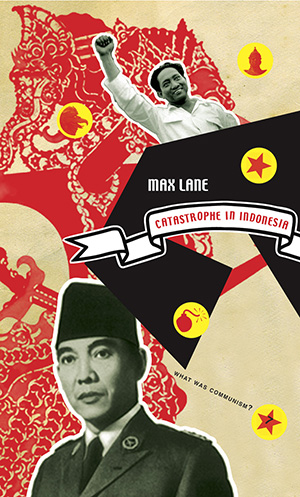
The Indonesian Community and Activists Library (ICAL) is already an impressive “shell” in the front garden of Australian author and socio-political analyst, intellectual and consultant Max Lane, arguably the most knowledgeable English-language writer on Indonesian affairs.
Dr Lane, who has been writing and commenting about cultural and political developments in Indonesia, Philippines, Timor-Leste and his homeland since the 1970s, is delighted that completing the centre is so close.
“We have almost completed this building, the library, which will have a reading room, an office, and also some accommodation for those who would like to stay for a few days, or even longer to use the library,” he says, gesturing towards the empty rooms at the complex in the rice-producing and tourist village of Ngepas.
“The library will have about 4000 to 5000 books in the field of social sciences, humanities, history, feminism and so on.”
The books have been donated, but they mainly comprise the collections of some of Australia’s leading activists, such as John Percy, over more than five decades of his life.
Percy was a veteran socialist who co-founded the radical youth organisation Resistance and the Socialist Workers Party in Australia. He edited Direct Action for many years and helped establish Green Left Weekly. He died in 2015 and his passing inspired the library project with Lane, a close friend.
Filling a gap
The progressive book collection will help fill a gap in the literature for young activists and lecturers.
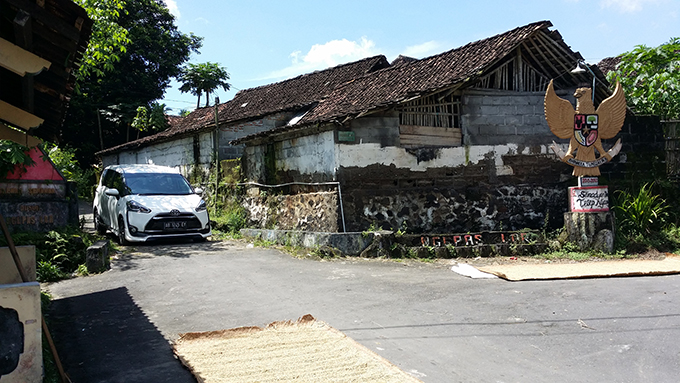
“We think the books are going to be very much put to use because this particular collection is probably still very difficult to find in Indonesia because of 35 years of authoritarian rule. Many books were not allowed, or difficult to be positioned, in libraries,” Lane says.
Under the Suharto regime between 1965 and 1998, book acquisitions for Indonesian school, university and community libraries were “underfunded and, when funded, narrow and censored”.
Lane hopes that ICAL will, in a “small but effective way”, help improve the situation.
“The books will comprise the collections of Australian progressive activists and intellectuals,” he says.
“The complex here is a very nice area to work in. It is less than half an hour from the three main university campuses and we expect university students, lecturers, NGO activists, political activists and others to be using the facilities here.
“It’s almost finished. We are still short of funds — we need US$3000 or $4000 to finish the central part of the library so people can start to use it. And probably another $5000 or $6000 to finish the accommodation area so people can stay over.
Team managing
“So I can say it is 80 percent or 90 percent funded and it will only take one or two months for the builder to complete work on it.”
Dr Max Lane and his wife, Faiza Mardzoeki, will manage the centre. She is one of Indonesia’s leading women playwrights and theatre directors, whose works include the 2006 play Nyai Ontosoroh (Madame Ontosoroh). She will be the day-to-day manager of the library programme.
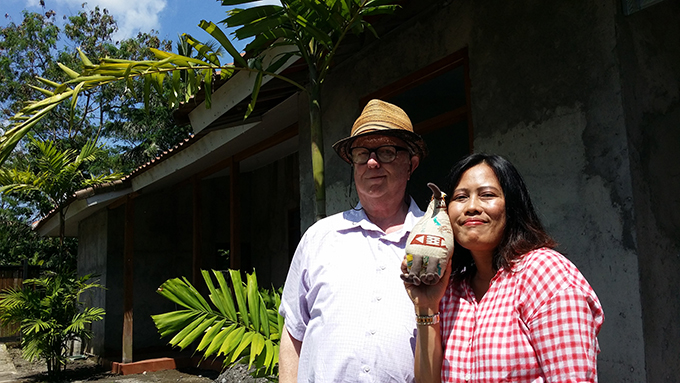
Their home is a bungalow next door, on the banks of an attractive stream. Dr Lane injected about US$25,000 into the project himself and provided the land on their property.
Between them, Lane and Mardzoeki hope to see the centre become a lively base for creative and cultural activity. Classes, forums, discussions, short course training sessions on a range of topics relating to social sciences and humanities, and literature will be on the bucket list.
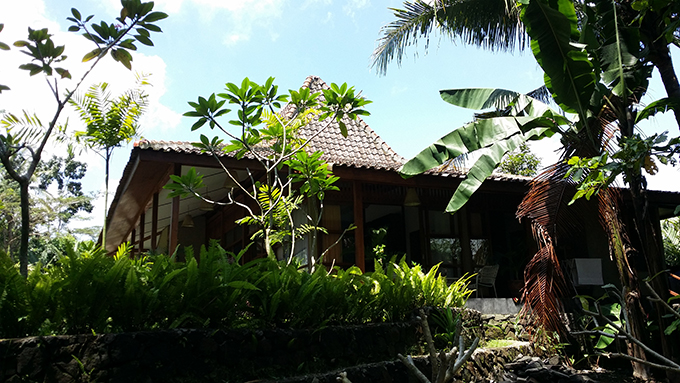
Dr Lane introduced the English-speaking world to the celebrated revolutionary Indonesian author Pramoedya Ananta Toer, who was imprisoned by Suharto for a decade on the Maluku island of Buru, by translating his classic Buru Quartet novels, starting with Bumi Manusia (The Earth of Mankind) in 1980. He was an officer working at the Australian Embassy at the time and it was not a popular move among his superiors.
According to an Asymptote profile of Dr Lane by Fadli Fawzi and Nazry Bahrawi, it was a dangerous era.
“At this time, Indonesian president Suharto’s New Order regime (the Partai Golongan Karya — Party of the Functional Groups, known as Golkar) was in power, propped up by foreign investment and backed by the army.
Heavy-handed repression
“It was also when heavy-handed repression was the norm in Southeast Asia, and Suharto’s New Order government was no exception. In the early 1980s, corpses began surfacing in public places as a result of extrajudicial killings.”
This was also a period when the Indonesian military was involved in bloody repression in East Timor after the country was invaded at the end of 1975.
Dr Lane’s own extraordinary literary outputs, apart from his translations, include his Unfinished Revolution: Indonesia Before and After Suharto (2008), Catastrophe in Indonesia (2010), and Unfinished Nation (2014) and collections of poetry.
Currently, Dr Lane is visiting senior fellow at the Institute for Southeast Asia Studies in Singapore. Previously he has lectured at universities across the region, including the University of Sydney in Australia and Gadjah Mada University in Yogyakarta, and internationally.
The ICAL venture will be supported by a membership drive with the original members being invited on the basis of recommendations from of a panel of university professors and social justice activists.
Prospective new members will need to be recommended by two existing members.
More information about ICAL and a donations link are on the centre’s crowdfunding page.
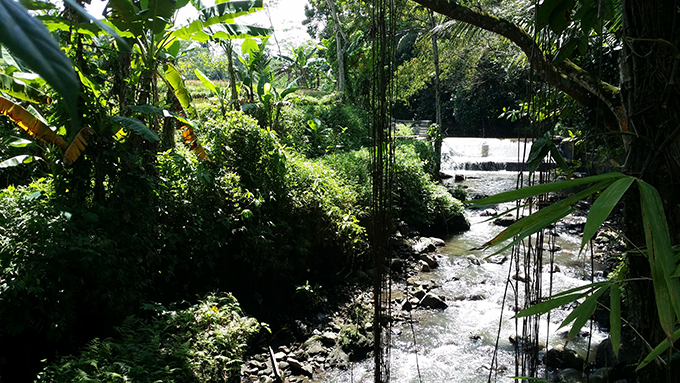










































[…] Source: An Indonesian oasis of progressive creativity emerges in culture city | Asia Pacific Report […]
Comments are closed.